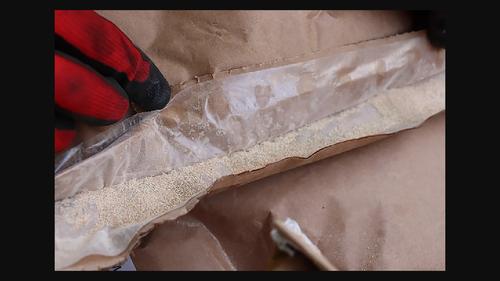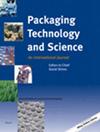How to measure the angle of repose of hazardous substances in the test centres for dangerous goods packagings
IF 3.7
4区 工程技术
Q2 ENGINEERING, MANUFACTURING
引用次数: 0
Abstract
The flow properties of powdery or granular filling substances for dangerous goods packagings are safety‐relevant parameters. To specify the flow behaviour, the angle of repose is measured in the recognized test centres for dangerous goods packagings in Germany. Previous investigations performed on non‐hazardous substances revealed that some of the methods currently used have disadvantages in application. Additionally, for occupational health and safety reasons, it was generally viewed critically to carry out measurements of the angle of repose for dangerous goods at all. Instead, the dimensionless Hausner ratio to describe the flow behaviour was proposed. In this work, the investigations were extended to real hazardous substances to concretize the assessment. Five exemplary hazardous substances were tested for their angle of repose using the methods commonly applied in the test centres. The Hausner ratio was also determined. In addition, the influence of a different climatic preconditioning on the angle of repose measurement was examined using three selected non‐hazardous bulk materials. The results show that the measurement of the angle of repose is not fundamentally excluded for dangerous goods. However, for reasons of applicability, repeatability and occupational health and safety, only the ISO method can be applied for dangerous filling substances. This method provides conservative results regarding a safety‐related evaluation of flow properties for the transport of dangerous goods. In principle, both the ISO method and the determination of the Hausner ratio can be used for dangerous goods. It is also essential especially with finely powdered filling goods, to carry out controlled preconditioning.

在危险品包装检测中心,如何测量有害物质的休止角
用于危险品包装的粉状或颗粒状填充物质的流动特性是与安全相关的参数。为了指定流动行为,休止角是在德国公认的危险品包装测试中心测量的。以前对无害物质进行的研究表明,目前使用的一些方法在应用中存在缺点。此外,出于职业健康和安全的原因,人们普遍认为对危险货物的落脚角进行测量至关重要。相反,提出了无量纲豪斯纳比来描述流动特性。在这项工作中,调查扩展到实际的有害物质,以具体的评估。使用测试中心常用的方法测试了五种示范性有害物质的休止角。豪斯纳比率也被确定。此外,不同的气候预处理对休止角测量的影响,使用三种非危险散装材料进行了检查。结果表明,对于危险货物,休止角的测量并非根本不存在。但是,出于适用性、可重复性和职业健康与安全的考虑,只有ISO方法才能适用于危险填充物质。该方法对危险货物运输的流动特性的安全相关评估提供了保守的结果。原则上,ISO方法和豪斯纳比的测定都可以用于危险品。进行可控的预处理也是必要的,特别是对细粉状的灌装货物。
本文章由计算机程序翻译,如有差异,请以英文原文为准。
求助全文
约1分钟内获得全文
求助全文
来源期刊

Packaging Technology and Science
工程技术-工程:制造
CiteScore
4.90
自引率
7.70%
发文量
78
审稿时长
>12 weeks
期刊介绍:
Packaging Technology & Science publishes original research, applications and review papers describing significant, novel developments in its field.
The Journal welcomes contributions in a wide range of areas in packaging technology and science, including:
-Active packaging
-Aseptic and sterile packaging
-Barrier packaging
-Design methodology
-Environmental factors and sustainability
-Ergonomics
-Food packaging
-Machinery and engineering for packaging
-Marketing aspects of packaging
-Materials
-Migration
-New manufacturing processes and techniques
-Testing, analysis and quality control
-Transport packaging
 求助内容:
求助内容: 应助结果提醒方式:
应助结果提醒方式:


